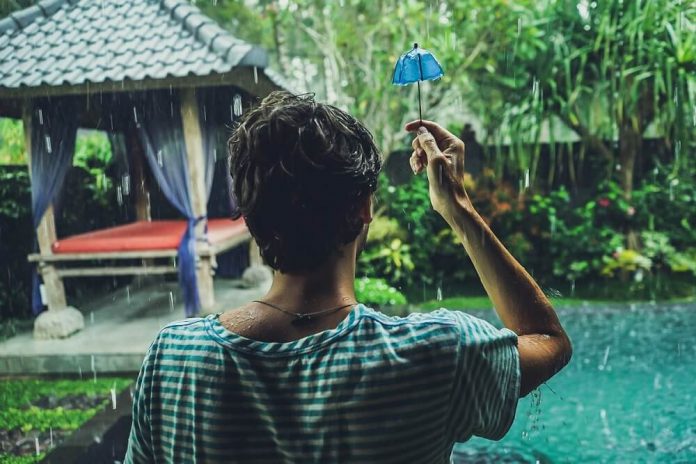 Monsoon is a season for enjoying the rainy days and hot chai pakodas. Monsoon is the season to try and test all monsoon food, and in 2020 we had the chance to all stay at home to enjoy all the delicious foods. There are many recipes available and you can choose from a wide range of vegetables, if your preference is seasonal homemade food. Monsoon is the rainy season and can lead to contaminations and infection. It is crucial to be aware of what to eat and avoid during monsoon season. This blog will cover how to stay healthy in the monsoon season. You can stay safe, healthy and fit while still enjoying your normal food. Before we get started, let’s look at the reasons we become sick during the rainy season.
Monsoon is a season for enjoying the rainy days and hot chai pakodas. Monsoon is the season to try and test all monsoon food, and in 2020 we had the chance to all stay at home to enjoy all the delicious foods. There are many recipes available and you can choose from a wide range of vegetables, if your preference is seasonal homemade food. Monsoon is the rainy season and can lead to contaminations and infection. It is crucial to be aware of what to eat and avoid during monsoon season. This blog will cover how to stay healthy in the monsoon season. You can stay safe, healthy and fit while still enjoying your normal food. Before we get started, let’s look at the reasons we become sick during the rainy season.
Why Monsoons Make Us Feel Sick:
During heavy rainfalls, infections and sneezes are common. Hot chai and Indian favourites are a popular way to enjoy August in India. However, August can also be referred to as a month with quick sicknesses and infections. Many people experience symptoms such as nausea, vomiting, and food and water contamination. How can we avoid these health problems and enjoy the monsoon season without getting sick? It is important to take precautions, to adjust your diet to suit the season, and to know what to eat. Let’s take a look at some foods you should avoid during the monsoon period.
Avoidable Foods During Monsoon Season:
Other than street food and oil-bathed fries, there are other foods that should be avoided. Here’s a complete list. Let’s find out how many you knew.
#1- Fried Foods

Yes, I do! It’s obvious that you are wondering how it is possible to not eat fried food in the rain. You can, but it is not a good idea to make it a daily routine. While samosa, pakoda and French fries are delicious, they are not healthy. When you fry your food, make sure to use high-quality oil. Try a healthier version of pakodas, substituting potatoes, onions and cauliflower with green herbs. To reduce the harmful effects, you can use kadhipatta, mint or any other herb.
#2- Eating Street Foods:
Indians love street food, including all things golgappas and chole-bhature. Avoid going to all the vendors, as they could be a breeding ground for harmful germs and infections. You can still enjoy these delicious delicacies if you try. You can cook almost anything at home.
#3 – Leafy Vegetables:
For those who have been eating greens since childhood, this can come as a surprise. Greens can be eaten daily, but you should switch to more pungent greens during monsoon season. Healthy vegetables during regular rains include tori, lauki and tori.
#4 – Curd:

Curd or dahi, also known as curd, is considered to be the food of the gods in the hot summers. It is a no-no during the monsoon. Buttermilk and curd are bacterially produced foods. While it aids digestion, in the rainy season it can cause problems. Avoid having too many of these and keep it to a minimum.
#5: Fizzy or cold drinks:
 The drinks will cause damage to our already weak immune system and digestive system. Carbonated drinks can cause the body to lose minerals. Carbonated drinks can also cause acidity in your teeth and bones. You can either make your own hot/warm lemon-ginger or take a bottle with you of lemon water. We will be grateful for your help later.
The drinks will cause damage to our already weak immune system and digestive system. Carbonated drinks can cause the body to lose minerals. Carbonated drinks can also cause acidity in your teeth and bones. You can either make your own hot/warm lemon-ginger or take a bottle with you of lemon water. We will be grateful for your help later.
Avoid too much seafood, as it can lead to the spread of unwanted bacteria. Increase your immunity-boosting foods like ginger, garlic, and turmeric. Warm drinks such as herbal teas or soups, and bitter foods like karela are good options. This practice is called Ritucharya, and Ayurveda attaches great importance to it.
Conclusion:
Monsoon occurs just after the summer heat and before the fall. You will need to adapt to changes in the weather and your eating habits. This blog will briefly discuss the major foods to avoid during damp monsoon season. Make your own food to reduce the risk of infection and keep you hydrated, even if it isn’t the most thirsty time of the day.




